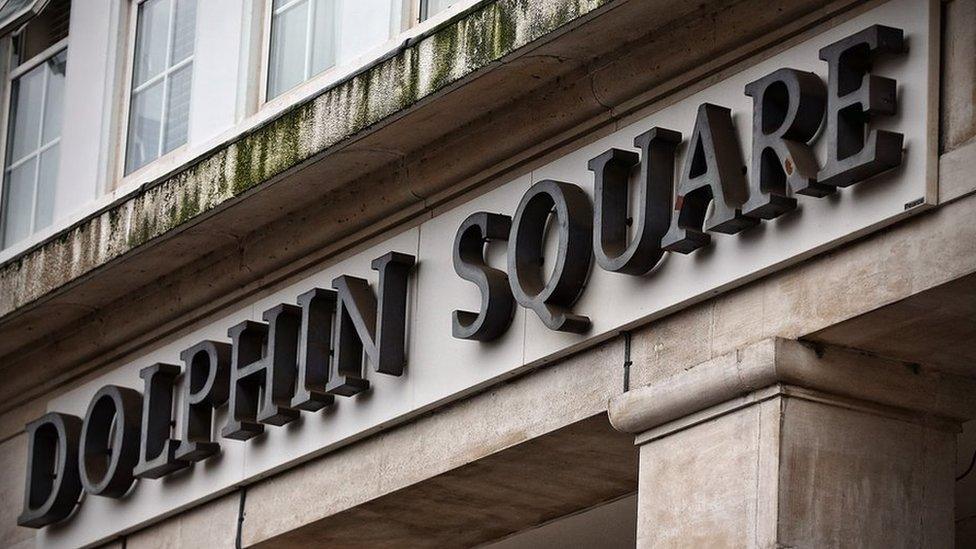Searching for the truth about child abuse
- Published

Many of the abuse allegations centre on Dolphin Square, near the Houses of Parliament
The title of last night's ǵüµÇ¨û§ Panorama programme was "The VIP Paedophile Ring: What's the Truth?".
Its answer? "We really don't know".
And that was its point, I think. It identified potential weaknesses in the testimony of three men whose stories have driven much of the media coverage and political campaigning around the claim of a VIP paedophile ring.
One man suggested he had been coaxed by campaigners to name his abuser as the former Home Secretary Leon Brittan.
In doing so, it raised the question of whether the substantial resources being spent on the investigations is well placed and whether detectives are at risk of causing huge potential distress to people wrongly accused.
'Reputations trashed'
It should come as no surprise that Scotland Yard is aggravated by the programme's potential impact.
Senior officers clearly don't like journalists checking their homework and there are legitimate concerns that evidence may be contaminated by media questions.
Nevertheless, the programme does raise important and difficult questions about the focus the criminal justice system now places upon alleged victims.
After the Jimmy Savile scandal (and there have been many other cases since), it became clear that perpetrators of child sexual abuse were evading justice because their accusers were not believed.
Police and prosecutors changed their approach, encouraging victims to come forward and telling them they could be confident that they would be believed.
Tens of thousands have now done so - but the problem is that abuse victims, almost by definition, are often fragile and vulnerable individuals.
One man suggested he had been 'coaxed' to name Leon Brittan
The abuse may have occurred decades ago. Memories may have got confused. Others, and this certainly seems to be the suggestion of the Panorama programme, may have put ideas or details in people's minds, contaminating their evidence.
Long before these matters get tested in a court of law, there is the risk that in following up accusations - interviewing alleged suspects, searching their homes, cautioning or arresting them - those matters get reported, names are revealed and innocent people have their reputations trashed.
So there are questions about the role of the police and the role of the media.
There is no answer to the programme's title but rather another question.
How can society continue to encourage victims to have the confidence to tell their stories, confident that they will be given a fair hearing and their allegations properly investigated, without turning those wrongly accused into victims themselves?